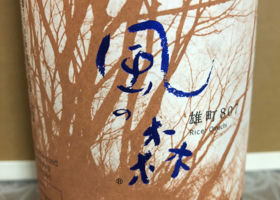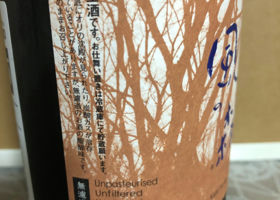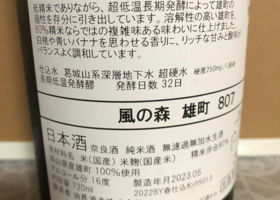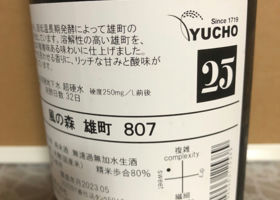



baya
When served cold, it has an interesting sweet, umami, acid, astringent, and bitter taste that is well balanced with a slight gassiness.
When served lukewarm, the overall flavor becomes darker, and the acidic astringent bitterness in the aftertaste is bothersome, so it would be better not to serve lukewarm.
I thought this might be the case, so I tried heating it up, and as expected, the acidity and bitterness subsided and the depth of the taste became apparent, giving it a fine and complex flavor.
The complex tanginess is the foundation of the flavor, and the finish is wonderful, showing the deliciousness and potential of a sake made from rice.
I realized the potential of hot sake just before finishing it, so it was a pity that I could only drink a small amount.
Next time I'd like to try it hot from the first sip!
Japanese>English
アルス
Good evening, baya-san. I always find it helpful to know about not only cold sake, but also lukewarm and hot sake. I never thought of Kaze no Mori as a hot sake. I am learning a lot from you.
Japanese>English
baya
Good evening, Mr. Ars!
Please try a small amount of Kaze no Mori hot sake!
I opened a bottle of Kouei Kiku today and was surprised to see that it was the same as yours twice in a row, lol!
Japanese>English